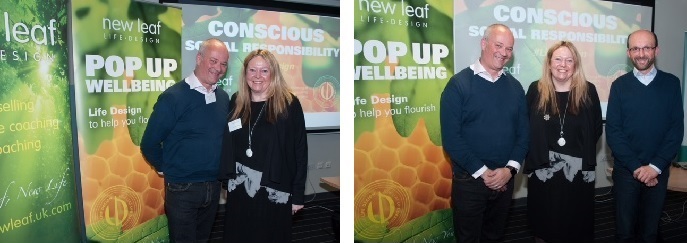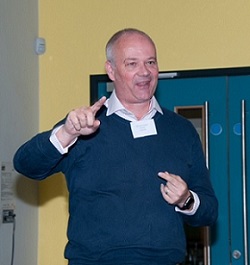In November 2017, I organised ‘The Wellbeing GIG’ in Somerset where I met with a group of people to explore the ways in which we can help self-employed people access ways to improve their wellbeing.
How do we look after our wellbeing in a new world of casualisation? Workplace casualisation essentially refers to the shift in employment from a preponderance of full-time and permanent positions to casual and contract positions.
More than 99% of private companies can now be defined as small and medium-sized enterprises (SMEs). The backbone of our economy, it’s a sector bursting with talent, entrepreneurship and potential. It is also one of the worst performing in terms of employee health outcomes, with one-third of SME employees experiencing a mental health problem during their working life (CIPD, 2016). So how can we create a suitable service which isn’t just an employee assistance insurance model, which like some gym memberships, you join but never use?
Much of recent RSA work has focused on employment, and in particular self-employment (Taylor Review, The Self-Organising the Self Employed report). I was keen to explore the findings further and set about asking how we can help self-employed people access ways to improve their wellbeing.
In November 2017, I invited a group of people to meet in Bridgwater, Somerset to discuss how to create a wellbeing service for the self employed. Mark Hooper, founder of Indycube, spoke to help make the idea a reality. He had been cited in The Taylor Review for his work partnering with Community Union to launch a new platform for the Self Employed.


It's important to acknowledge that some work is being done and we can see some good resources being developed by for example, the Institute of Directors who recently released a paper calling on British businesses to set up formal mental health policies and integrate mental health awareness into training.
I'm also aware that the Federation of Small Businesses now as part of its membership offer has RedArc which supports its members in wellbeing by having a qualified nurse on the end of the phone, and one-to-one counselling can be arranged for members. This is however, an insurance model. We also have Fit for Work launched in 2015 by the Government to provide support on workplace health to GPs, employers and employees.
Nowadays as a wellbeing organisation, I am asked to come into workplaces when relationships have become toxic and the employee experiences the workplace as having lost its humanness. I am often asked to try and fix the problem. What I see is individuals hungry for wellbeing and connection with others. For the humanness and soul to be brought back.
However, before I bring out the bunting; for me something doesn’t sit too well. I have to ask myself a couple of stiff questions as a provider of wellbeing and counselling services.
1. Why are some of the most basic human relationships of listening, trusting, being treated with respect feeling removed from the workplace and now sold as services?
2. Why are we outsourcing our wellbeing services rather than insourcing them more?
The more I think about these questions, the more I want to create something different for the future. In the Wellbeing GIG, the group talked around the stigma in accessing services and Mark Hooper suggested that networks needed to organically grow to enable them to build and become a self sustaining wellbeing structure.
We agreed that simply creating one platform for wellbeing would not work; the group preferred a community wellbeing offering. This idea evolved into creating a space which was unbranded, which could become a fire starter group. Fire is typically seen as a paradox, because in addition to its role as destroyer, it can also create and regenerate.
The challenge now is to find a place where we as SMEs and micro providers can talk about our mental health and wellbeing, without having to outsource this to yet another insurance company. To start insourcing by finding a way to create the space where we can gather and build new healthy relationships.
The GIG economy has many challenges; short-termism is creating environments where our personal interactions are more about tasks and checks on our performance. Humanness is vanishing and with it, our fundamental support. Putting wellbeing at the heart of workplace design for GIG workers and SMEs will allow us to grow a new world of work where we can look after our wellbeing whilst engaging in this new economy. In order to achieve this, a new way of thinking and delivering wellbeing is required.
If you'd like to get involved with the Wellbeing GIG, please contact Becky Wright on becky@newleaf.uk.com
Pictured: Mark Hooper FRSA, Nick Parker FRSA, Becky Wright FRSA

Be the first to write a comment
Comments
Please login to post a comment or reply
Don't have an account? Click here to register.